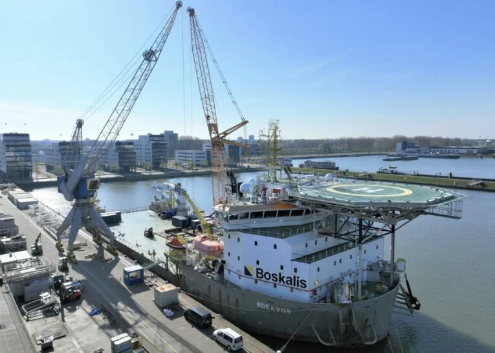Dutch offshore services provider Boskalis has, through its subsidiary SMIT Salvage, reached an agreement with the United Nations Development Programme (UNDP) to remove oil from a floating storage and offloading (FSO) facility moored off Yemen’s Red Sea coast.

Source: Boskalis
This Stop Red Sea Spill operation is a part of the UN-coordinated project to remove and transfer more than one million barrels of oil from a decaying tanker into a safe modern tanker and the responsible disposal of the Safer FSO.
The Safer FSO is moored approximately 9 kilometers off the Red Sea coast of Yemen and 50 kilometers northeast of the port of Hodeida. Constructed in 1976 as an oil tanker and converted in 1987 to a floating storage facility, Safer is single-hulled and is believed to contain an estimated 1.14 million barrels of light crude oil.
According to Boskalis, the FSO has not been maintained since 2015 due to the conflict in Yemen and has decayed to the point where it could explode or break apart, which would have disastrous environmental and humanitarian effects on the region.
Boskalis’ project scope consists of a number of phases. The multipurpose support vessel Ndeavor has been prepared in the Netherlands and is set to sail to Djibouti over the coming three weeks.
“We have been assisting the UN in their endeavors to avert a potential massive environmental and humanitarian disaster off the coast of Yemen since 2021. We are extremely delighted that these efforts and the perseverance of the UN to raise the necessary funds has brought us to this agreement,” said Peter Berdowski, CEO of Boskalis.
“The Boskalis vessel Ndeavor will depart tomorrow from the port of Rotterdam stocked with all the necessary salvage equipment and I wish the crew all the success in this important mission.”
The salvage crew will make the final preparations in Djibouti before departing for the site located off the coast of Yemen. The initial onsite phase will focus on a thorough inspection of the vessel and its cargo and creating a safe working environment.
Once the vessel and its cargo tanks are declared safe, an UN-purchased very large crude carrier (VLCC) will come alongside at which point the ship-to-ship oil pumping operation can commence.